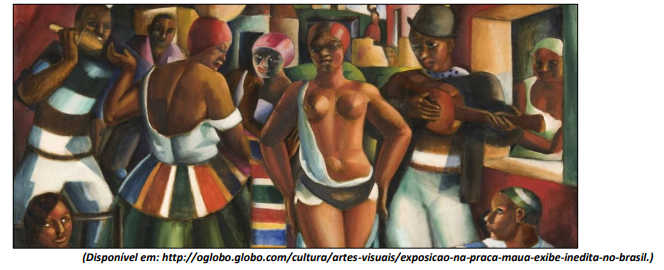Questões de Concurso
Comentadas para professor - inglês
Foram encontradas 13.050 questões
Resolva questões gratuitamente!
Junte-se a mais de 4 milhões de concurseiros!
A escola é o lugar onde se concretiza o objetivo máximo do sistema escolar, ou seja, o atendimento direto de seus usuários nas relações de ensino-aprendizagem. É nela que as metas governamentais são atingidas ou não, e que as políticas educacionais se realizam tal como o previsto ou sofrem distorções. Ao discutir autonomia da escola, Veiga destaca algumas dimensões consideradas básicas para o bom funcionamento de uma instituição educativa e que, segundo ela, devem ser relacionadas e articuladas entre si:
I. Autonomia administrativa: consiste na possibilidade de elaborar e gerir seus planos, programas e projetos e autonomia jurídica – diz respeito à possibilidade de a escola elaborar suas normas e orientações escolares.
II. Autonomia financeira: refere-se à disponibilidade de recursos financeiros capazes de dar à instituição educativa condições de funcionamento efetivo.
III. Autonomia pedagógica: consiste na liberdade de propor modalidades de ensino e pesquisa. Está estreitamente ligada à identidade, à função social, à clientela, à organização curricular, à avaliação, bem como aos resultados e, portanto, à essência do projeto pedagógico da escola.
Estão corretas as afirmativas
“Toda escola tem objetivos que deseja alcançar, metas a cumprir e sonhos a realizar. O conjunto dessas aspirações, bem como os meios para concretizá-las, é o que dá forma e vida ao chamado Projeto Político-Pedagógico – o famoso PPP. Podemos conceituar o PPP definindo as próprias palavras que compõem o documento. É projeto porque _______________; é político porque _______________; é pedagógico porque _______________.” Assinale a alternativa que completa correta e sequencialmente a afirmativa anterior.
As medidas de combate ao tabagismo poderão ser ampliadas. Está pronto para ser votado na Comissão de Assuntos Sociais (CAS) o projeto que proíbe a venda de fumígenos para menores de 21 anos (PLS 236/2016). O autor do projeto, o ex-senador Ricardo Franco (DEM-SE), argumenta que uma restrição mais rigorosa é uma questão de saúde pública e também um direito dos jovens brasileiros. Ele destaca que a proibição alcança o uso e a venda de cigarros, cigarrilhas, charutos, cachimbos ou qualquer outro produto fumígeno, derivado ou não do tabaco.”
(Disponível em: http://www12.senado.leg.br/noticias/materias/2016/09/06/projeto-proibe-venda-de-cigarros-para-menores-de-21-anos.)
Conforme a legislação brasileira atual, a proibição de venda de fumígenos atinge menores de
“A desaceleração da economia da China terá consequências negativas na economia mundial em 2016, especialmente nos países emergentes, afirmou a agência de classificação Moody's. O enfraquecimento mais pronunciado do que o antecipado da economia chinesa é atualmente um dos maiores riscos para a economia global, avaliou a agência no documento. O mundo olha atento para a desaceleração do ritmo de crescimento econômico da China, que pode afetar as economias de diversos países, inclusive o Brasil.”
(Disponível em: http://economia.uol.com.br/noticias/efe/2016/05/19/desaceleracao-da-china-mais-aos-paises-emergentes-avalia moodys.htm.)
Apesar dessa crise, a China continua sendo a segunda maior economia do mundo. Esse crescimento acelerado teve início principalmente a partir

A imagem mostra uma importante pintura do modernismo brasileiro que será exibida pela primeira vez no Brasil desde que foi pintada, em 1927. Trata-se de “Samba”, uma tela de quase 2 m x 1,60 m pertencente ao marchand uruguaio Martin Castillo e pintada por:
(Disponível em: http://g1.globo.com/economia/imposto-de-renda/2016/noticia/2016/09/receita-abre-consulta-ao-4-lote-do-ir-2016-nestaquinta.html.)
No fim de abril, a Receita Federal informou que 716 mil declarações já estavam retidas na malha fina do IR devido a inconsistências das informações prestadas. Sobre a “Malha Fina”, assinale a afirmativa correta.
“Todo presidente dos Estados Unidos se dedica a duas tarefas simultâneas: governar o dia a dia e preparar seu lugar na história. Quanto mais próximo o fim do mandato, mais se fala do legado. Que marca deixará? Barack Obama, presidente desde janeiro de 2009, deixará a Casa Branca depois do fim do seu segundo mandato. Em uma entrevista à revista The New Yorker, publicada em 2014, Obama refletiu sobre a limitada capacidade dos presidentes de mudar o mundo e disse: ‘Nós só tentamos que o nosso legado seja correto’.”
(Disponível em: http://brasil.elpais.com/brasil/2016/01/11/internacional/1452533002_110738.html.)
Assinale a alternativa que contém uma ou mais ações marcantes do governo de Obama.
Uma empresa de telefonia oferece planos com junção de até três tipos de serviços: telefone fixo, TV por assinatura e telefone móvel. Após um lavamento, a empresa constatou que dos seus clientes:

Sabendo que a empresa possui 50.000 clientes, então o número de clientes que assinam o plano que contém os três
tipos de serviços é:
“Later, as English came into contact with other cultures around the world and distinctive dialects of English developed in the many areas which Britain had colonized, numerous other languages made small but interesting contributions to our word-stock.”
The word “word-stock” could be replaced without change of meaning by
Read this sentence from the text.
“The earliest period begins with the migration of certain Germanic tribes from the continent to Britain in the fifth century A.D. [...]”
“From” is one of the most common prepositions in English and it was used in this example to indicate the starting point in a movement. Choose the following alternative in which the preposition “from” is being used to express the same idea as in the example above.
“The history of English is conventionally, if perhaps too neatly, divided into three periods usually called Old English (or Anglo-Saxon), Middle English, and Modern English.”
Adverbs can be used in different positions in a sentence. For example, adjuncts of indefinite frequency such as “usually” most typically occupy mid position when they take the form of adverb phrases.
Choose the following alternative which presents an adverb of indefinite frequency being used in its most typical position.
Which fact from the text supports this claim?